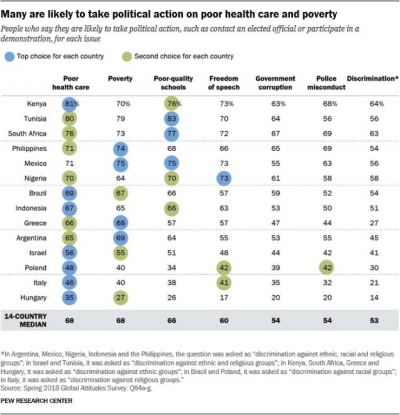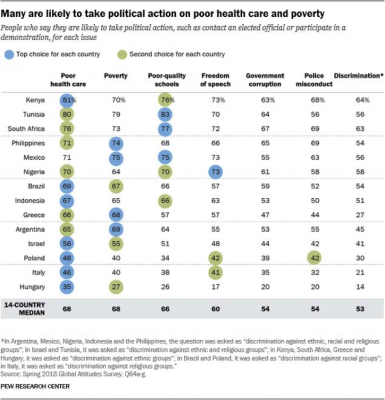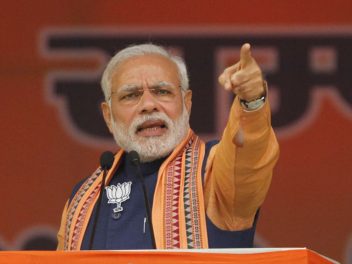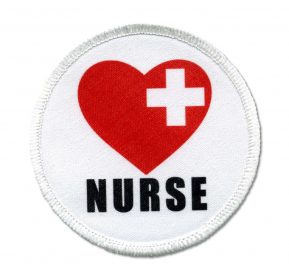By Kumar Balani
NEW YORK, NY – Poverty is the top concern of Filipinos. The second and third most important issues to them are poor health care and police misconduct. Four other issues in rank of importance are: poor quality schools, freedom of speech, government corruption, and discrimination. This is based on face-to-face interviews with people in the Philippines.
Filipinos were found in a study (see details below) to be the fourth most politically-engaged people worldwide, after people in Kenya, Tunisia, and South Africa. The least engaged were Hungarians, whose score on their top issue of concern – poor health care – was a mere 35, and on their second top concern – poverty – it was just 27.
Filipinos are most likely, with a score of 74 percent, to take political action such as contact elected officials or participate in demonstrations on the issue of poverty. They are also likely, with a score of 71 percent, to speak out and vent their feelings on the problem of poor health care. They are also outspoken on the issue of police misconduct, with a high score of 69 percent.
Around the globe, 14,875 people in 14 countries with diverse political systems took part in a study on political engagement conducted in October 2018 by the Pew Research Center in collaboration with the Center for Strategic and International Studies (CSIS) that included Argentina, Brazil, Greece, Hungary, Indonesia, Israel, Italy, Kenya, Mexico, Nigeria, Poland, South Africa, and Tunisia. The top three issues of concern expressed were poor health care, poverty, and poor schools.
Aside from voting, relatively smaller numbers of people take part in other forms of political and civic participation. But younger people, people who are liberal (on the left side of the political spectrum) and those with more education, have higher levels of participation and concern with issues that affect their lives. The study found that overall in many nations around the world, much of the public is disengaged from politics.
In contrast, Filipinos overall are very much engaged, and got higher scores expressing importance and concern than the 14-country median scores on all the issues. These are the eight key findings from this study, which are also true for Filipinos
- Most people vote, but other forms political participation are less common
- Health care, poverty and education are the top motivator for political engagement
- Young people vote less often
- Young people are more likely to participate online
- Young people are also more motivated by a variety of issues
- There is a strong link between education and political participation
- Social networking usage is linked to greater engagement on issues
- People on the political left are more likely than those on the right to take action’
In the case of Filipinos, 97 percent of those 50+ in age vote. Among those aged 30-49, a high 96 percent also vote, and even among those aged 18-29, a high 78 percent vote. But when it comes to posting comments online, only four percent of those aged 50+ do so, compared to 11 percent among those aged 30-49, and 26 percent 18-29 year-olds.
Younger Filipinos are also more inclined to speak up on the right of freedom of speech, with 72 percent among those in the 18-29 age range inclined to speak up, versus 67 percent among the 30-49-olds and 61 percent among those 50 years or older. Social-media using Filipinos are 73 percent likely to take political action versus only 59 percent among non-social media users.
Kumar (Kem) Balani has an AB Journalism degree from the University of the Philippines and an MA in Politics from New York University. He is founder and publisher of Biz India Online News since 2002. Go to www.BizIndia.net to read book reviews, features, news, opinion columns, and videos on business, entertainment, investing, law, sports, technology, and more.
This column first appeared in the Daily Tribune in the Philippines on Sunday, March 24, 2019. Read Kumar Balani’s columns in that newspaper: http://tribune.net.ph/index.php/author/kumar-balani/








